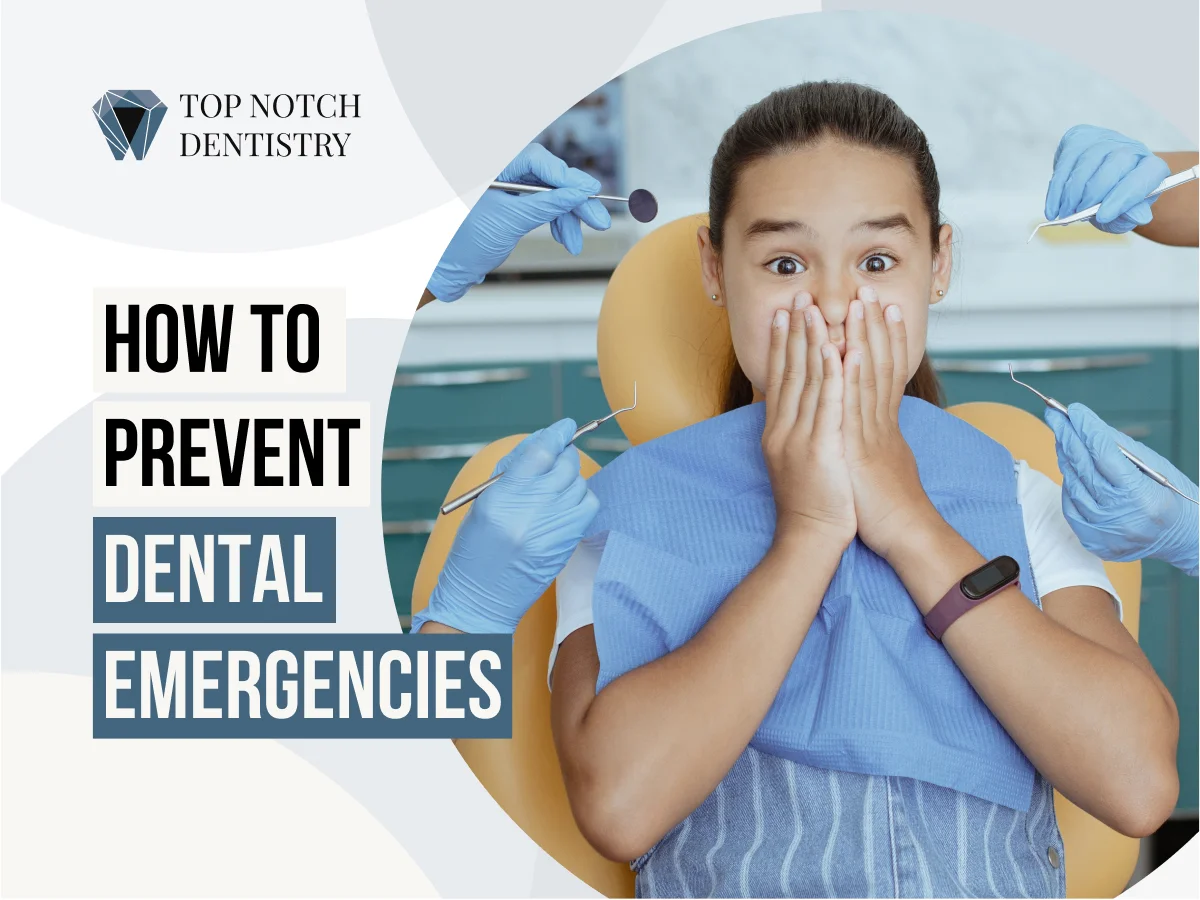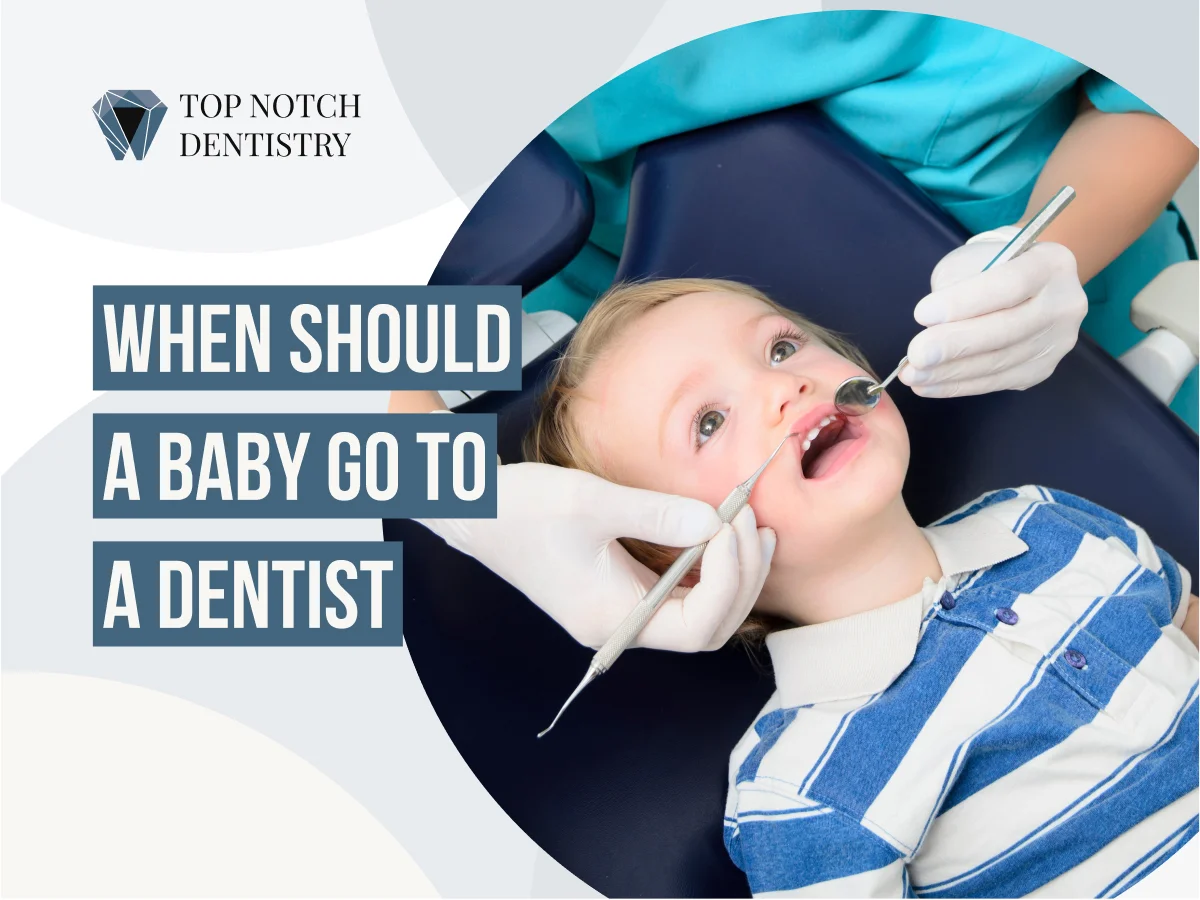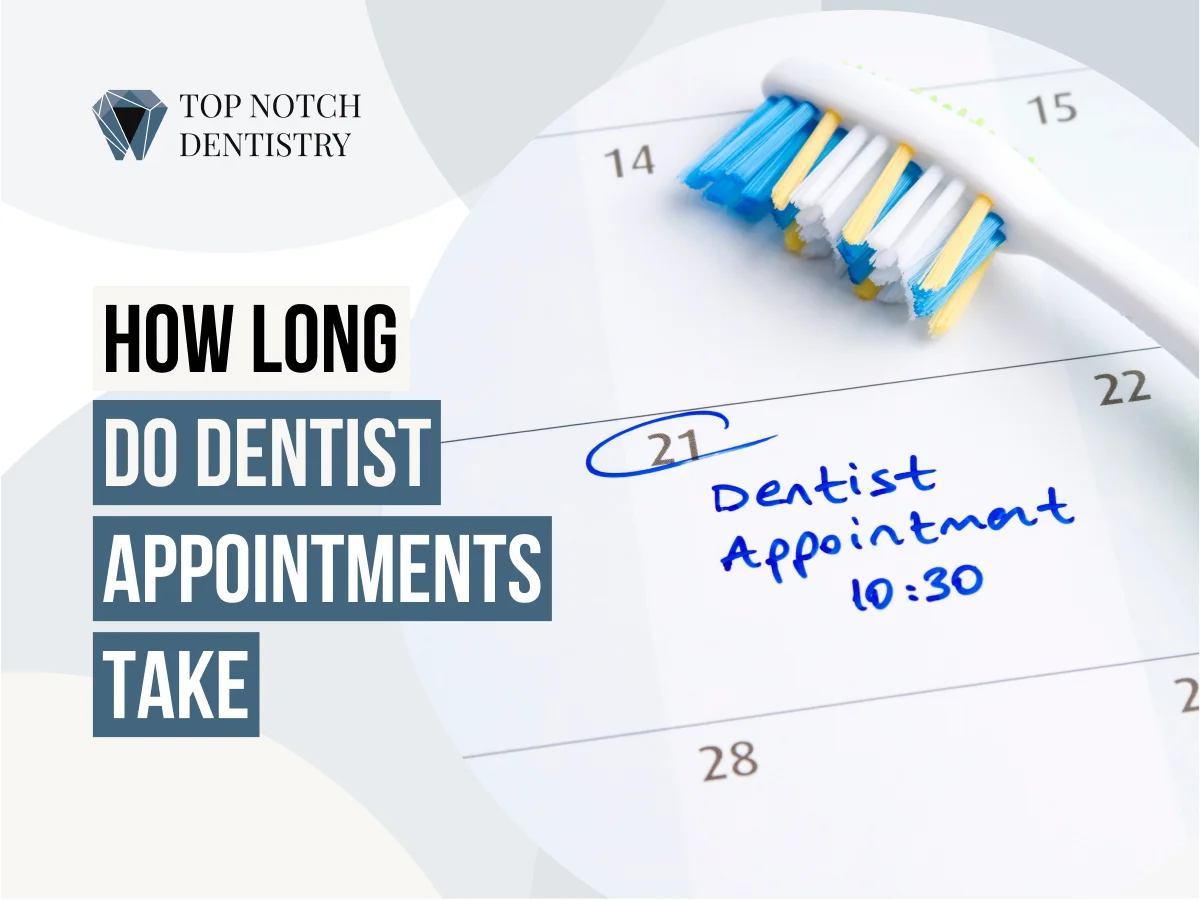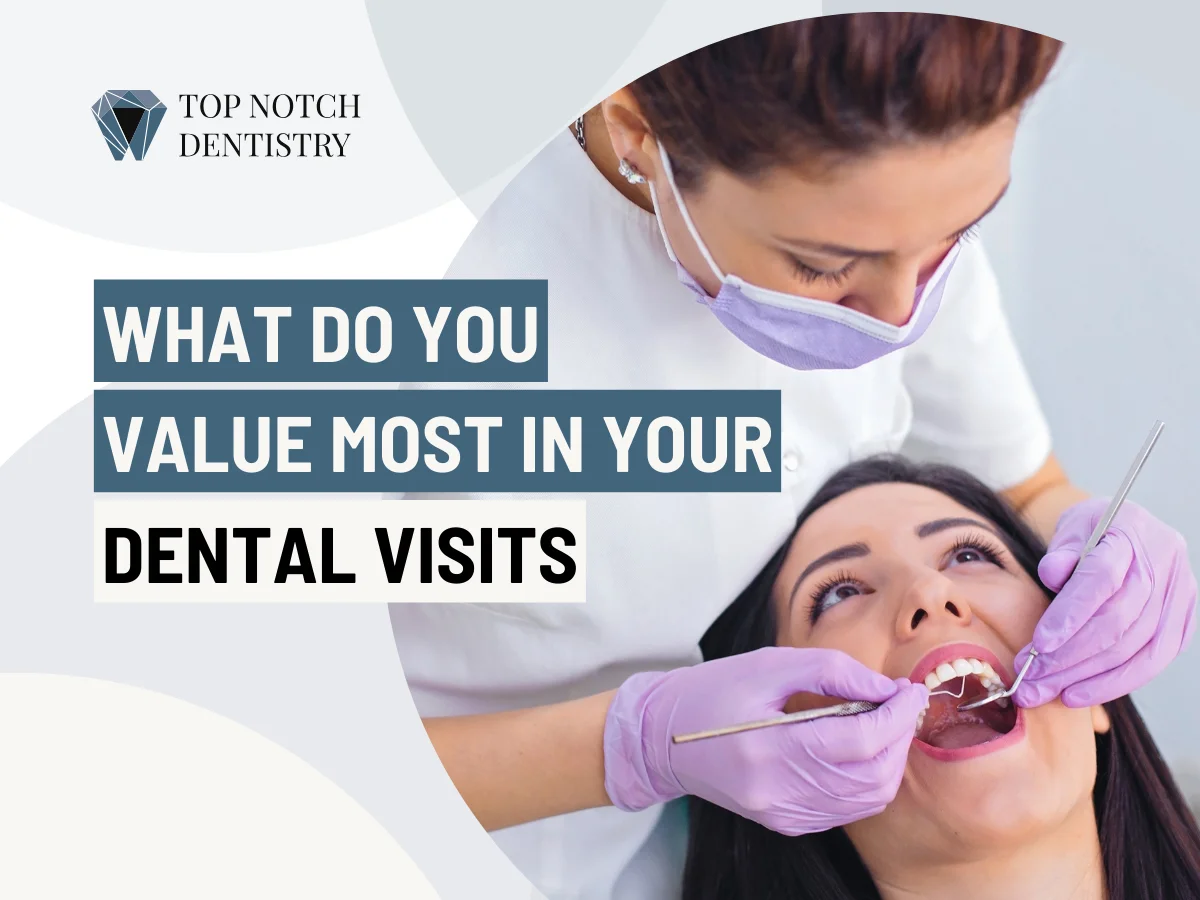
Dental emergencies can happen at any time, causing unexpected pain, inconvenience, and sometimes even requiring urgent treatment. Whether it’s a sudden toothache, chipped tooth, lost filling, or knocked-out tooth, these issues can disrupt your routine and lead to expensive dental care. However, with proper precautions, many of these emergencies can be prevented.
This article explores the most effective preventive steps you can take to safeguard your oral health and avoid emergency visits to the dentist. We’ll also touch on some common dental misconceptions and provide practical advice on preparing for emergencies to prevent unnecessary pain and stress.
Common Types of Dental Emergencies With Examples
Dental emergencies can occur suddenly, causing pain and discomfort that requires immediate attention. While some emergencies arise from poor oral hygiene, others result from accidents or unexpected events. As a result, understanding the most common types of dental emergencies can help you recognize when urgent care is needed. This includes:
- Severe Tooth Pain or Abscesses: Intense pain often indicates infection or decay is present. Abscesses can also form, leading to swelling and discomfort.
- Broken or Chipped Teeth: These can result from biting down on hard objects or accidents. Immediate care is essential to avoid further damage.
- Knocked-Out Teeth: Often caused by sports injuries or falls, knocked-out teeth require quick action to increase the chances of saving the tooth.
- Lost fillings or Crowns: When these dental restorations fall out, they leave the tooth vulnerable to infection or further damage.
- Injuries From Accidents: Blows to the face during contact sports or car accidents can cause various dental injuries, including fractures or dislodged teeth.
Recognizing these emergencies and seeking prompt treatment is crucial in preventing long-term damage and maintaining optimal oral health.
Ways to Prevent Dental Emergencies
It’s important to prioritize proper oral hygiene to prevent dental emergencies. From making smart lifestyle choices to scheduling regular dental checkups, following a few basic steps can help you avoid dental problems and protect your oral health.
Practice Good Oral Hygiene
Proper oral hygiene is one of the most effective ways to prevent dental emergencies. This includes brushing twice a day with fluoride toothpaste and flossing regularly to help remove plaque and prevent tooth decay, gum disease, and infections. Using mouthwash can further protect against bacteria buildup, minimizing decay while strengthening enamel.
Regular hygiene practices ultimately reduce the likelihood of common dental issues, such as cavities or gum inflammation, which, if left untreated, can lead to emergencies. However, be sure to also schedule routine dental cleanings and exams to detect and address problems before they become more serious.
Wear Protective Gear
For those who play contact sports or engage in physical activities, wearing protective gear such as mouthguards is essential to prevent dental emergencies. Mouthguards help cushion blows to the face, minimizing the risk of broken, chipped, or knocked-out teeth. Similarly, if you grind your teeth at night (bruxism), a custom-fitted night guard can protect your teeth from wear and damage.
Taking these precautions helps to avoid dental problems, reduces the risk of dental injuries, and also helps prevent costly, painful treatments.
Avoid Bad Habits
There are many ways to prevent dental emergencies. This section contains some simple dental health tips about bad habits that can cause dental emergencies.
Certain habits can significantly increase the risk of dental emergencies. Chewing on hard objects like ice, pens, or fingernails can lead to cracked or chipped teeth. Using your teeth to open packages or bottles can also cause damage. Additionally, smoking and consuming excessive sugar greatly weakens enamel and gums, increasing the risk of tooth decay and gum disease.
Fortunately, by avoiding these bad habits, you can protect your teeth from unnecessary damage and reduce the likelihood of dental issues that could require emergency care.
Manage Dental Health Conditions
Existing dental health conditions, such as gum disease, tooth decay, and bruxism (teeth grinding), can worsen over time if left untreated. This can lead to painful infections or damage that may require urgent treatment. As a result, regular checkups and preventive dental exams are crucial to help monitor and treat these issues early.
Maintaining open communication with your dentist about any concerns or discomfort also allows for timely intervention, further reducing the likelihood of emergencies.
Eat a Healthy Diet
A balanced, nutritious diet plays a key role in maintaining dental health and preventing emergencies. Foods rich in calcium, vitamins, and minerals, for example, strengthen teeth and gums, while sugary and acidic foods can contribute to tooth decay. To protect your oral health, consider the following:
- Consume Dairy Products: Milk, cheese, and yogurt provide calcium, an essential mineral that strengthens tooth enamel and prevents cavities and erosion.
- Eat Fibrous Vegetables and Fruits: Crunchy veggies like carrots and apples stimulate saliva production, which helps cleanse the mouth and neutralize acids to prevent tooth decay.
- Limit Sugary Snacks and Drinks: Excessive sugar leads to plaque buildup and cavities, increasing the risk of emergencies.
Regular Dental Visits
Scheduling regular checkups is one of the most effective ways to prevent dental emergencies and ensure your oral health stays in top condition. Most dentists recommend visits every six months, though individuals with specific conditions may require more frequent appointments. This is because staying proactive with routine exams allows your dentist to identify potential issues before they become serious.
Regular six monthly professional cleanings also help reduce plaque buildup, lowering the risk of gum disease.
Recognize Early Symptoms
Being aware of early signs of dental issues can prevent dental emergencies before they occur, allowing for less invasive treatments and reducing the chance of complications. Here are some key issues to watch for:
- Tooth sensitivity or mild pain could indicate cavities or enamel erosion.
- Swollen or bleeding gums are a common sign of gum disease, which can worsen if left untreated.
- Loose or cracked teeth may require prompt attention to prevent further damage.
- Persistent bad breath can signal infection or decay, needing professional care.
By recognizing these early symptoms, you can seek timely dental advice and avoid potential emergencies.
Replace Toothbrush Regularly
Regularly replacing your toothbrush is a critical component of maintaining oral hygiene and how to prevent emergencies. This is because toothbrush bristles wear down over time and become less effective at removing plaque and bacteria, increasing the risk of cavities and gum disease.
To ensure optimal cleaning and better protection against these issues, dentists recommend replacing your toothbrush every three to four months or sooner if the bristles are frayed. It’s also important to replace your toothbrush after recovering from an illness to help avoid reintroducing harmful bacteria into your mouth.
Stay Hydrated
Water helps maintain saliva production, which plays a crucial role in neutralizing acids, washing away food particles, and preventing dry mouth—a condition that can lead to tooth decay and gum disease. As a result, drinking plenty of water, especially after meals, is essential to reduce the risk of plaque buildup and cavities.
In addition, choosing water over sugary or acidic drinks protects your teeth from erosion and decay, preventing dental emergencies and promoting overall dental health.
Address Dental Anxiety
Dental anxiety is a common issue that can lead to delaying or avoiding necessary dental care, increasing the risk of emergencies. To prevent dental problems, it’s essential to address these fears by communicating openly with your dentist about your concerns. Your dentist can offer techniques like sedation, distraction, or breaks during appointments.
Gradually building trust and scheduling regular, non-invasive visits can also help reduce anxiety over time.This lowers your chances of developing serious dental issues that could require emergency treatment.
Special Considerations for High-Risk Individuals
It’s important to note that certain groups are more susceptible to dental emergencies and thus require tailored preventive care.
One of these susceptible groups includes pediatric dental emergencies, which involve children. Others in the high-risk category include older adults and individuals with chronic health conditions, such as diabetes. These high-risk groups should take extra precautions to maintain their oral health and avoid urgent care. Some key considerations include:
- Children:
- Establish good oral hygiene habits early.
- Use dental sealants to protect teeth from cavities.
- Wear mouthguards during sports to prevent injuries.
- Older Adults:
- Address common issues like gum disease and weakened enamel.
- Ensure proper care of dentures or implants.
- Schedule regular dental checkups to detect problems early.
- Individuals With Chronic Conditions:
- People with diabetes should manage blood sugar levels and maintain oral health to reduce the risk of infections.
- Pay close attention to signs of gum disease, as it can worsen quickly in high-risk individuals.
By taking these extra precautions, high-risk individuals can significantly lower the likelihood of dental emergencies and preserve their oral health.
What to Keep in Your Dental Emergency Kit
Being prepared and knowing what to do for dental emergencies can make a significant difference in minimizing pain and preventing further damage until you can see a dentist. To ensure you’re ready to handle unexpected issues, we recommend keeping a well-stocked dental emergency kit on hand with the following essential items.
- Gauze can be used to control bleeding from injuries such as knocked-out teeth or cuts to the gums.
- Over-the-counter medications like ibuprofen can help manage pain and reduce inflammation until professional care is available.
- Dental wax is especially useful for covering sharp edges on broken braces or teeth, protecting your mouth from irritation.
- Temporary fillings can seal a lost filling or cover a chipped tooth temporarily to protect it from further damage.
- Your dentist’s contact information should always be readily available so you can call for advice or arrange an emergency appointment quickly.
By keeping these items in your dental emergency kit, you'll be better equipped to manage unexpected dental issues, providing immediate care while you seek professional treatment. This proactive approach ultimately helps prevent small issues from turning into larger emergencies.
It is also advisable to check with your dental clinic what to do in the case of an overnight dental emergency to access care out of hours.
When to Visit a Dentist in Case of Emergency
There are a number of problems that fall under the category ‘most common dental emergency’ that require urgent care. These include knocked-out teeth, broken or cracked teeth, and lost fillings or crowns. You should also address infections, abscesses, or sudden injuries from accidents quickly to prevent complications.
Remember, delaying treatment can worsen the issue, so it's important to contact your dentist as soon as possible if you experience severe pain or excessive bleeding or notice signs of infection such as swelling.
Final Thoughts on Ways to Prevent a Dental Emergency
Preventing dental emergencies starts with consistent oral hygiene, smart lifestyle choices, and regular preventive dental exams. By practicing good habits and staying proactive, you can prevent dental emergency situations like tooth decay, gum disease, and injuries; however, if emergencies do arise, having a plan and maintaining a dental emergency kit can make all the difference.
For expert care and guidance on maintaining your dental health, schedule your preventive dental exam with Top Notch Dentistry of Dallas today. Let us help you avoid dental emergencies and keep your smile healthy!


